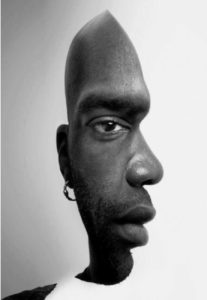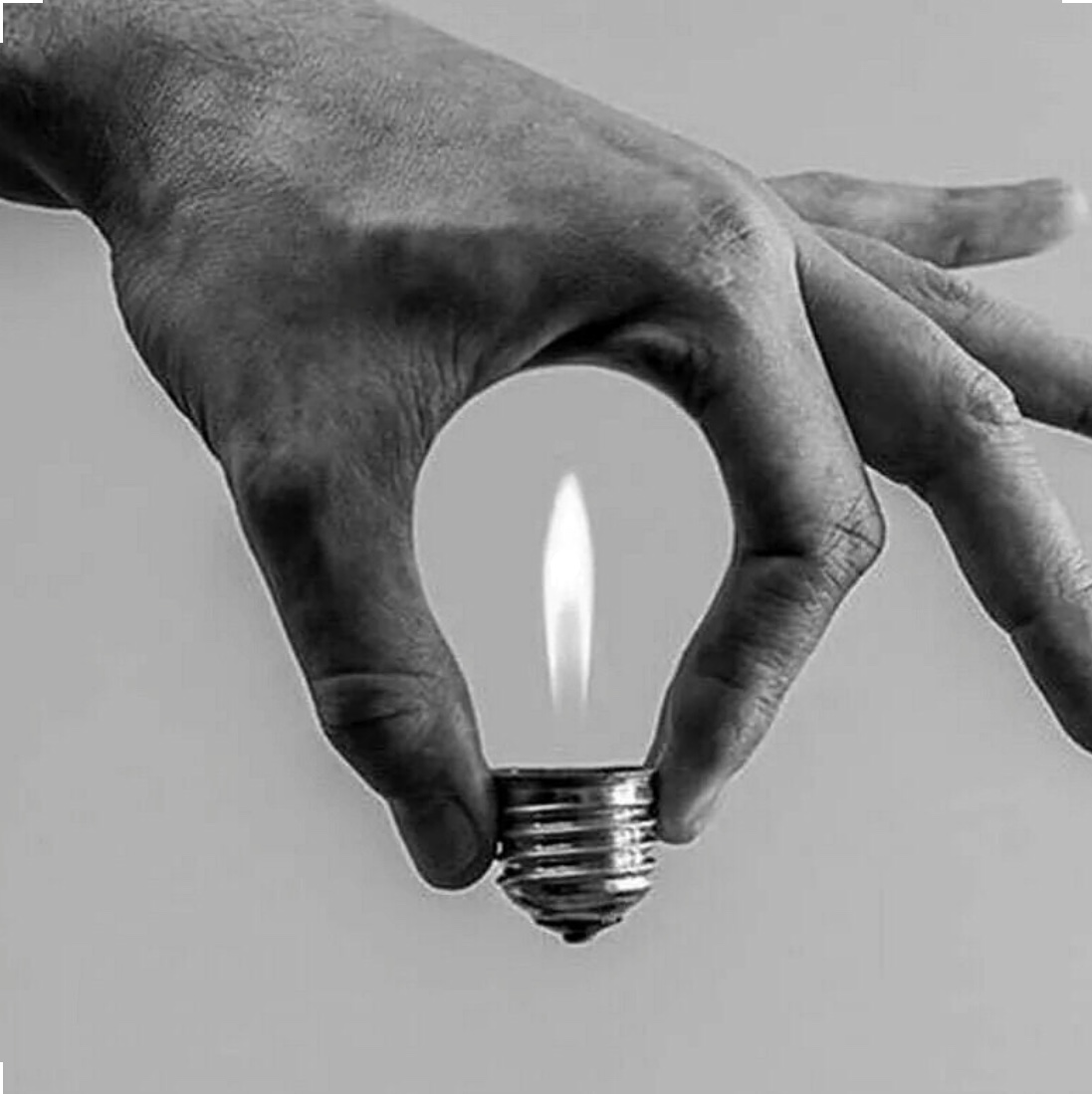Gestalt psychotherapy
Individual humanistic therapyWhat is Gestalt Therapy?
 In individual therapy I love working with the Gestalt approach, because of the practical way in which it alleviates your current experience from the very beginning of therapy. The point of reference in Gestalt is what you are feeling here and now. This focus eases treatment. Have you ever been able to fully describe a flavour, a sunrise or how you feel when you are in love? It is impossible, for some things cannot be expressed with words. Sensations and feelings speak a language the mind does not understand. This is the great thing about Gestalt, that instead of spending session after session speaking about the problems in your life, we leave all explanations aside and directly access those sensations the mind cannot understand. We directly access the void caused by absences of care, love or desire. This void is different for each person, because it hides your personal uncomprehended background. With the Gestalt techniques we manage to penetrate this void and gradually fill it with meaning. Meaning brings coherence, a deep understanding with which you gradually fill up your voids, until you can leave them in your past, freeing your mind and allowing you to fully be your present self.
In individual therapy I love working with the Gestalt approach, because of the practical way in which it alleviates your current experience from the very beginning of therapy. The point of reference in Gestalt is what you are feeling here and now. This focus eases treatment. Have you ever been able to fully describe a flavour, a sunrise or how you feel when you are in love? It is impossible, for some things cannot be expressed with words. Sensations and feelings speak a language the mind does not understand. This is the great thing about Gestalt, that instead of spending session after session speaking about the problems in your life, we leave all explanations aside and directly access those sensations the mind cannot understand. We directly access the void caused by absences of care, love or desire. This void is different for each person, because it hides your personal uncomprehended background. With the Gestalt techniques we manage to penetrate this void and gradually fill it with meaning. Meaning brings coherence, a deep understanding with which you gradually fill up your voids, until you can leave them in your past, freeing your mind and allowing you to fully be your present self.
This is how I have experienced Gestalt in my life and how I live it day by day in my practice. With the focus on the present, I combine a series of dynamic and creative techniques to dodge mental judgments – all those ‘I can not …, I should not …, I have to …’ that block your potential, preventing you from being who you really want to be. They are thoughts and ideas acquired in the past and projected into the future. But life and change take place in the present. Through your feelings here and now, during the therapy session, you learn to listen to yourself, realise what is happening to you and contact with your abilities. Thus you transform your resistances into the driving force to change your situation, with your own full potential.
 The origin of Gestalt therapy
The origin of Gestalt therapy
More than a therapy, Gestalt is a way of life originating from Fritz Perls during the 50s’ to the 60s’ of the last century. Perls understood life as something in constant movement that we permanently keep adapting to. He spoke of our organism’s natural tendency towards a state of emotional and physical internal balance. This state of well-being is interrupted both by the needs of the organism itself (thirst, hunger, cold, heat …), and by desires emerging from our interaction with the environment (affection, acceptance, recognition, success …). The organism restores the state of equilibrium through internal self-regulation, consisting of the five stages of theGestalt cycle as described by Zinker:
- As desires and needs arise, they become a certain sensation.
- When this sensation becomes strong enough, it enters consciousness, making us aware of our desire or need.
- Then we mobilise our energy, motivating ourselves and mobilising our muscles.
- We get into action, in order to satisfy our need or desire, either walking to the kitchen to get a glass of water, approaching another person or whatever it is we need or desire.
- We make contact with the environment, that is we take the glass of water and drink it or we start interacting with the other person, etc.
- Once we have satisfied our need or desire, we close the cycle withdrawing and returning to the state of rest or balance, until the next desire or need arises.
This Gestalt cycle outlines Perls’ concepts of figure and ground: in the state of equilibrium we perceive a balanced background. Our desires or needs emerge from this ground taking a certain shape or figure (in GermanGestalt), which once satisfied dissolves again as part of the ground, restoring the state of equilibrium and rest. However, if for some reason we cannot satisfy our need, either because we have to do something else at that moment, or because we do not have the necessary means or abilities, or someone or something prevents us from doing so, then that figure remains unresolved and cannot re-assimilate with the ground, preventing us from returning to our state of equilibrium. Demands, prejudices, norms and other external mandates are the main factors stoping us from satisfying our needs. Those incomplete figures remain in the mind, causing background noise as a call to be resolved, and thereby interfering more and more with the spontaneous cycle of self-regulation. If we do not find a way to satisfy those needs, over time the organism restores the equilibrium by creating a defense mechanism which moves those unsatisfied needs and desires into unconsciousness. With this coping mechanism equilibrium is ‘artificially’ restored, at the cost of getting stuck with similar stimuli or situations in the future. Thus the mind comes to rest, but this dispatch into the unconscious can create a void in the experience, which we perceive as emptiness, purposelessness and anxiety. These sensations become the symptom of the incomplete figure for as long as the issues of fear, guilt, shame, resentment, reproach, etc. are not resolved.
Gestalt therapy is about recovering the sensations withheld in the void, through awareness. Tracing back emotions and exploring defense mechanisms, they lead us to those unresolved situation that triggered them in the past. By bringing that impasses back to conscious awareness and finding new strategies to cope with it, one by one we resolve and close past experiences that kept you stuck. As a result the associated defense mechanisms lose their purpose and naturally disappear, freeing you to act in ways you previously perceived as impossible. Gradually the feelings of unease, emptiness and anxiety give way to an internal balance and peace.
How do I work with Gestalt?

As I said earlier, rather than reasoning, in Gestalt therapy I mainly focus on your sensations. How do I do this in practice? Basically with the three fundamental parameters of Gestalt therapy:
- Full attention – that is, to be aware of the facts without judgments or evaluations. With this impartial attention, free of excuses or blame, you understand why you behave the way you do and how this might be contributing to the problems you are having. Hereby we also identify your defense mechanisms, which I will look into in more detail in the next section.
- In the present – that is, in touch with what you are feeling here and now. This allows you to get in touch with your impasse, that moment in your past when you did not find the support you needed to resolve a problem (when you could not close that incomplete figure which triggered the defense mechanism, eventually causing your current distress).
- Taking responsibility – that is, understanding and unjudgementally accepting the consequences of your thoughts, words and actions or non-actions. By taking responsibility you stop putting the cause of your impasse outside, where you have no power to change your situation. This allows you to find your own resources to resolve your problem in a satisfactory manner. Taking responsibility also implies accepting the lack of response from the environment, thus freeing you from the blame and anger which prevent you from finding healthier and more efficient scenarios.
Furthermore, the three main Gestalt questions I ask during treatment are ‘what’, ‘how’ and ‘what for’. With the ‘what’ I gain information about your current situation, about those issues because of which you come to therapy. With the ‘how’ we explore your personal way of behaving and managing situations, in order to identify more efficient and less exhausting strategies of being yourself. This point is more reflective, as it leads us to those commands and introjects by which you behave in a learned manner and which are interfering with your authentic way of being. The ‘what for’ is the really interesting point. Here is where the therapeutic adventure begins, namely finding a way out of your dead end road and opening up your own universe of possibilities for change.
 What are defense mechanisms?
What are defense mechanisms?
Defense mechanisms are those strategies we unconsciously develop to stop feeling uncomfortable or distressing emotions, in order to move forwards. In this sense they initially have a positive and necessary coping function, as they enable us to function in life. Yet if we do not adapt them to changing circumstances, in the long run they can become resistances which block us from achieving our goals. One of the main setbacks of defense mechanisms is that they keep us finding excuses or putting the blame on somebody or something else, thus avoiding to take the necessary responsibility and determination to resolve unsatisfactory situations.
What tools do I use in Gestalt therapy?

In essence, Gestalt sessions are a creative process of reconstructing your own identity and history. Many of the Gestalt techniques used in therapy are originally from other therapeutic schools. From Freud’s psychoanalysis, for example, Perls derived putting the attention on the mind in order to allow for the unfinished figure to emerge. From Reich’s Bioenergetics he took the idea that our psychological defenses are engraved in our biological body and reflected in our bodily symptoms. Putting the priority on emotions rather than on reasoning stems from Buddhist meditation, as does the idea that fears are the most difficult thing to talk about. Other techniques were developed by Perls, the most representative being the hot chair or the tyranny of ‘top dog vs. under dog’.
What is gestaltic about all the techniques used is how, through improvising and adapting them to your therapeutic experience, you gain insight into how you are stuck in your current situation and find more authentic and satisfactory responses.
 How do you benefit with Gestalt?
How do you benefit with Gestalt?
How do you benefit with Gestalt?
In Gestalt therapy the aim is not change, but rather developing the ability of keeping your attention in the present moment, in touch with yourself and with your surrounding, acting instead of reacting and taking responsibility for what you say and do. The path is by learning to identify your emotions, without evaluating them. Claudio Naranjo, one of the main Spanish speaking representatives of Gestalt Therapy, describes Gestalt techniques as transferring attention from the outside, from being concerned about demands and self-image, to the inside, towards your inner state of being in your current circumstances. In therapy we do not talk ‘about’ what is happening to you, because reasoning, explaining and justifications put the attention and responsibility outside, transferring you into a past or future reality, from where nothing can be changed. You speak from within the experience of being yourself, from the ‘is-ness’. From here you touch your truth and take responsibility for your own life. The key factor is responsibility – the ability to respond. In the words of Claudio Naranjo, “Responsibility (…) is not a duty, but an inevitable fact” (Claudio Naranjo, La Vieja and Novísima Gestalt, attitude and practice of an atheoretical experientialism, Ed. Cuatro Vientos, Santiago de Chile, 1990, p.22), because what you do, think and say is yours. As Perls says, you can only be here and now. When you are in contact with yourself, change always happens. You expand your repertoire of behaviours and you acquire more resources to achieve the changes you want, in a natural and consistent way with your true self.
When do I work with Gestalt therapy?:
- Emotional disturbances such as stress, anxiety, aggressiveness, despair, depression, loneliness, isolation, apathy, self-esteem issues, lack of motivation, lack of concentration, low efficiency, overcoming grief, sleeping or eating disorders, socialising difficulties, phobias, tics, etc.
- Psychosomatic symptoms and certain chronic symptoms, where the emotional imbalance has come to manifest physically in the form of pain or illness. Among the most common symptoms are headache, respiratory difficulties, digestive disorders, motor limitations, skin problems, etc.
Don’t postpone changing your life.
Contact me to resolve any doubts.



